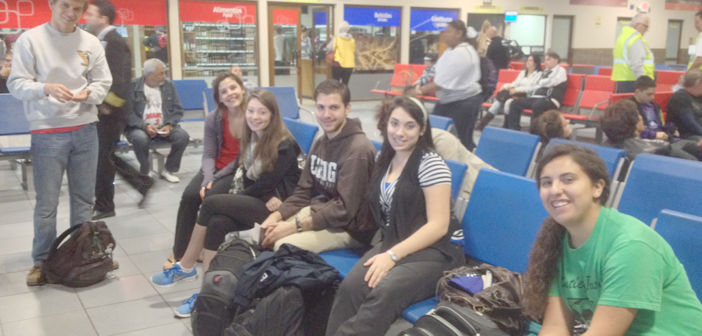With busy schedules and rigorous academics, not every Lehigh undergraduate can find the time to add a semester-long experience into their schedule.
To help combat this issue, Lehigh has introduced other options to make abroad experiences more accessible to busy students. Through winter abroad programs, students have the opportunity to travel to countries such as Cuba, Costa Rica, Martinique, Germany, South Korea, Singapore and the United Arab Emirates.
Katy Rene, the assistant director of Study Abroad, said all of the programs count for three credits and are taught by Lehigh faculty.
“The (programs) range in size and destination,” Rene said. “They stay standard from year to year, but occasionally, based on student interest, we’ll either have a program take a year off or have a new program.”
The lengths of abroad opportunities range from 10 days to three weeks, depending on the destination. This year’s addition is an abroad program in Cuba.
Jack Lule, the chair of the journalism and communications department, said he first led the program two years ago.
“At that point I felt like Lehigh should have some type of presence in Cuba,” Lule said. “Most Americans hadn’t been there before.”
More than 50 years ago, the U.S. placed an economic embargo on Cuba, which was on the verge of a nuclear war. The embargo affected travel between the U.S. and Cuba. Earlier this year, that embargo was lifted, and the countries have worked to reestablish diplomatic relations. With the relatively new changes, safety issues are at the forefront of discussion about travel to Cuba.
“When a group travels to Cuba, they’re actually required to work through some kind of Cuban education provider, and so those people are aware of any issues the group should be aware of,” Rene said. “The students have a safety orientation on the first day, but we don’t have any more concerns about going there than anywhere else, really.”
During the Lehigh pilot program in Cuba three years ago, the group did not experience any threats to their safety.
“The students were all struck by what a safe society it feels like,” Lule said.
Since the borders have opened up, Lule believes it is now the most important time to explore Cuba and its culture. He is particularly interested in the the state of journalism in Cuba.
Those who accompany him on the trip will earn communications credits while being immersed in journalistic endeavors within the communist country.
“We will also be doing a lot of interviews because it’s going to be a communication class,” Lule said. “We are hoping to have Cuban professors, economists and people from regular walks of life to talk to us about how life is changing with the new things going on between the United States and Cuba, and what kinds of expectations there are for the future.”
Lule described Cuba as a cultural sensation. The antique cars used in the ‘50s before the revolution are still in use and in good shape. Beautiful hotels that were left behind have been turned into apartments. Lule also described the baseball games as “crazy fun,” watching everyone dance around while blowing loud horns.
“Almost every aspect is recognizable, but different to the students,” Lule said. “That’s part of the fun of being there.”
Along with the cultural and learning experiences that accompany the Cuba program, other countries offer just as much experiential learning.
“Being immersed in a different culture is just so interesting,” said Samantha Smith, ’18, who traveled on the Martinique winter program in January. “And you don’t get that experience in a classroom setting.”
Some programs offer homestays, while others allow students to stay in residential dorms or hotels/hostels.
Smith said living with a host family was difficult, but also a learning experience.
“It starts out and you’re like, ‘Oh my gosh, this is so hard,'” she said. “The culture and language barrier — it’s frustrating, but also I learned so much.”
The winter abroad programs, which allow for a shorter experience and more flexibility, open students’ perspectives to different cultures around the world while allowing them to earn three course credits toward graduation.
“Every aspect of life is different and that’s one of the things I told the students last time — that this will be 24 hours a day of learning,” Lule said. “There’s hardly anything they will see that will be similar to back home.”






Comment policy
Comments posted to The Brown and White website are reviewed by a moderator before being approved. Incendiary speech or harassing language, including comments targeted at individuals, may be deemed unacceptable and not published. Spam and other soliciting will also be declined.
The Brown and White also reserves the right to not publish entirely anonymous comments.
1 Comment
Pingback: Winter abroad offers short-term travel opportunities - the brown and white 3d chair model free download for max